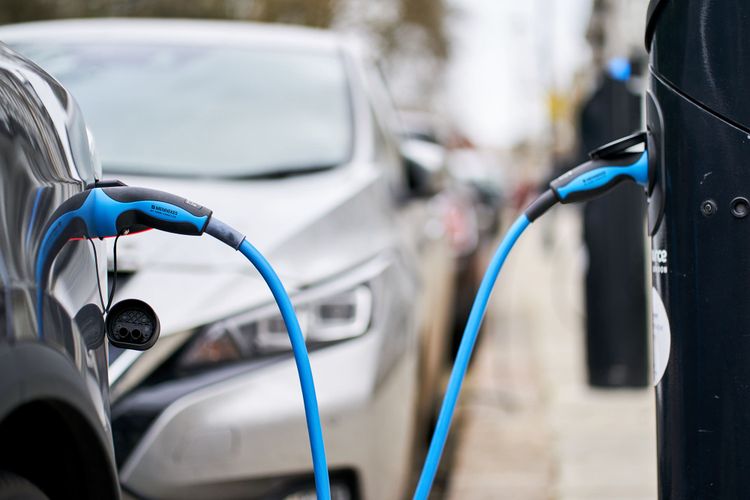Opinion: The industry needs to stand together and direct frustrations regarding EV adoption to those at the top – Car Dealer Magazine

Social networking platforms can be an excellent yet infuriating platform.
It's incredibly simple to access viewpoints from various perspectives and, as long as everyone maintains rationality, engage in a productive discussion that can offer valuable insights.

The issue of owning an electric vehicle (EV) appears to be causing a similar level of division as the Brexit debate, with passionate proponents and opponents of electrification emerging. And of course, there is also a significant number of individuals who fall somewhere in the middle of this spectrum.
There are individuals like me, and presumably many franchise dealers, who strongly desire a quicker shift towards electric vehicles. However, we believe that those in power who make important decisions are not living up to their responsibilities. This implies that for many of us, it would not be practical to think about owning an electric vehicle anytime soon.
We wholeheartedly back original equipment manufacturers (OEMs) and authorized dealers and understand the challenges they face regarding electric investments not generating anticipated profits, for which they are not to blame.
The reason for this is that there are commonly recognized obstacles to the purchase of electric vehicles, like cost, options, the time it takes to charge, and concerns about limited travel distance. I am happy to report that, based on our regular surveys of our two million drivers throughout the last three years, we are witnessing a gradual decline in each of those obstacles.
However, there are substantial obstacles that still exist, and a majority of them can be attributed to the individuals in positions of authority who have had a seemingly nonchalant approach towards electric vehicle (EV) adoption, even though they have imposed highly ambitious goals on the automotive industry.
This is the place where numerous remarks on social platforms appear to be fueling annoyance and rage in the incorrect path.
During the second quarter of 2020, electric vehicles (EVs) had access to a total of seven public charging stations on average. This number increased to 11 in the second quarter of 2021 and further rose to 15 in the second quarter of 2022. As of now, the count has reached 18 public charging stations.
There are nearly 45,000 charging points available, with over 10,000 being low-speed chargers. However, this falls far below the government's objective of reaching 300,000 charging stations.
Indeed, they do have the opportunity to make up for lost time. However, in the previous year, their installation tally barely surpassed 7,000.
Based on our conducted study, merely 50% of the individuals questioned were knowledgeable about the location of the closest charging points. Astonishingly, a massive 97% declared that the existing charging infrastructure fails to meet the current demand. Furthermore, 95% expressed dissatisfaction with its adequacy for the year 2022, and 92% held the same opinion for the year 2021.
Undoubtedly, these statistics consider the emotions of individuals who lack parking spaces on their property and may not be familiar with the innovative approaches that only a few local governments are currently experimenting with.
Even more concerning, 90 percent of respondents expressed doubt about the adequacy of charging capabilities by 2030. This percentage is higher than the 81 percent who expressed the same concerns last year and the 70 percent in 2021.
Once the stations are constructed and operational, drivers encounter a multitude of applications that they must register with.
Recently, a new law has been introduced to bring an end to this issue and enforce the utilization of uncomplicated technology which enables drivers to use a single application on all of the available public charging stations.
However, basic project management skills should have predicted this situation, and it is incredibly frustrating that this is happening now after numerous negative media coverage that has solidified a perception of inconvenience.
Consequently, companies like Regit, along with many individuals reading this post, are likely advocating for action to accompany the words spoken by those in positions of power. This is essential to instill confidence in consumers who are considering electric options, ensuring that their freedom of choice is preserved.
In order to advocate for improvement, it is essential to draw attention to deficiencies. Failing to do so increases the possibility that change will not occur.
In our opinion, the folks at Regit are engaging in approximately 1,000 discussions related to purchasing cars each day. Despite the fact that many of these discussions revolve around electric or hybrid options to some degree, if you had asked me five years ago, I would have anticipated a greater number of electric vehicle sales than what is currently being observed.
Our responsibility is not to coerce every potential customer we receive into purchasing an electric vehicle.
Instead, we aid drivers in shifting to whichever type of eco-friendly transportation suits them best – whether it be a fully electric vehicle or progressing from Euro 4 to Euro 6 standards. I believe many dealers are accustomed to adopting this standpoint.
So what's the conclusion? I anticipate that effective lead generation tactics focused on the pre-owned electric vehicle market will start yielding positive results as customers become increasingly informed about price drops. Moreover, my future automobile choice will also be an electric vehicle since there are some incredibly impressive models available for purchase.
For now, I will closely observe the advancements and I anticipate reflecting on the past decade as a time of significant and forward-thinking changes in the automotive sector.
Regardless of the circumstances, it is indispensable that we consistently urge those who are ultimately responsible to fulfill their commitments, considering the significant amount of money we have already allocated and will continue to allocate for electrification.



































